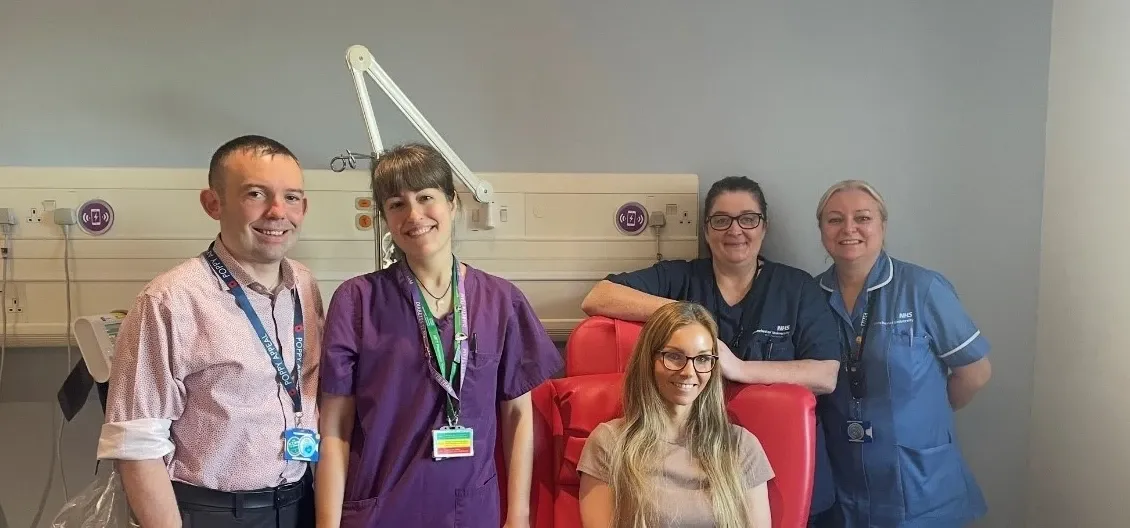
Katie is a solicitor and a mum to two girls, aged eight and two, living in Manchester. After being diagnosed with early-stage type 1 diabetes, Katie received a pioneering immunotherapy treatment, teplizumab (or Tzield), designed to delay the full development of the condition.
Katie was able to access teplizumab through a special programme run by the drug company that allows small numbers of people to try promising new treatments early.
